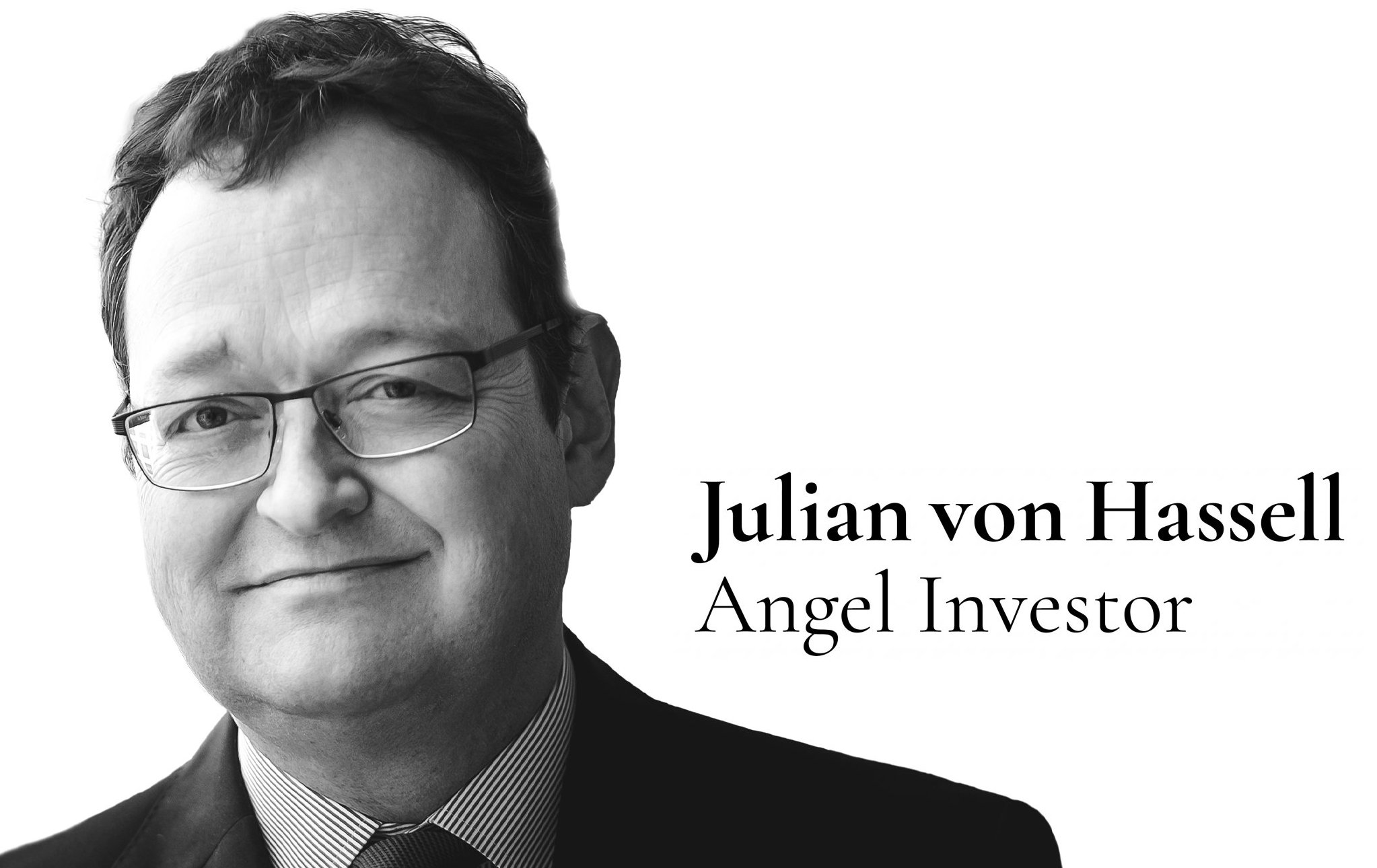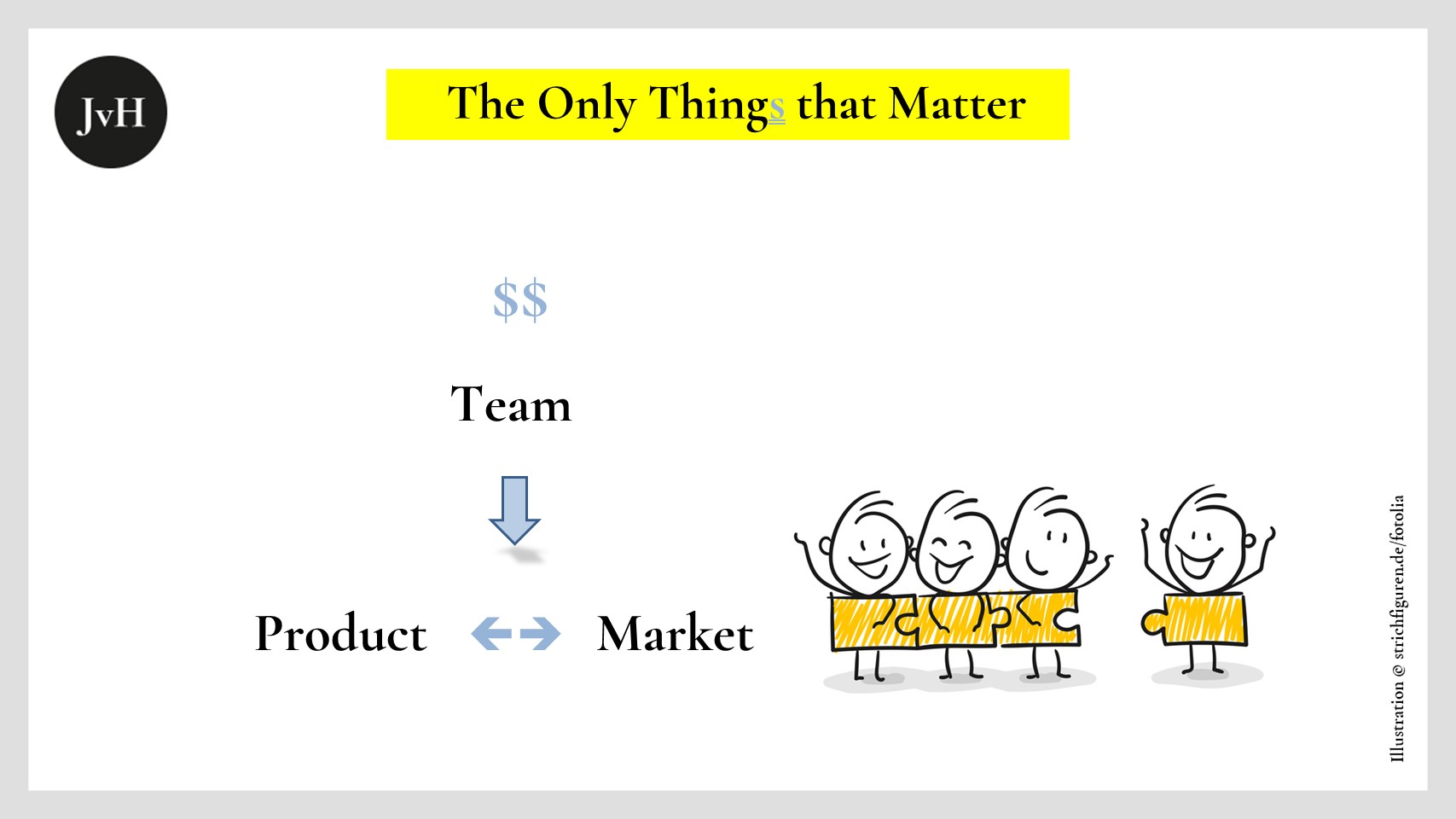Like everybody else in the venture scene, I do admire Marc Andreessen for his remarkable achievements in both the tech and venture territories. Yet, admiration is no adulation. If justified, criticism might pay a better tribute to the man than endless quotations of some of his more questionable thoughts.
On October 12, 2009 Marc posted a, now famous, article to his blog aimed at responding the eternal question as to what matters most for start-ups to end up as “successes”. Is it “team”, or “product” or “market”?
The article ends with the following two sentences: “But in almost every case [and unlike successful founders retrospectively assumed], the cause [for success/ lack of success] was actually product/market fit. Because, really, what else could it possibly be?”
Whether a product or service has actually hit or created a sufficiently big market is something that is by necessity a post festum qualification, i.e. one that can only be asserted or denied after the product/ service has been launched to that very market and after it returned either sufficient revenues to that start-up, or not.
To state, afterwards, that a start-up team did or did not manage to identify or create a sufficiently neat product/ market fit is, I am afraid, at best, a “historical” analysis, almost tantamount to saying it was successful because it was successful. Particularly so, if we go along with Marc and, for the sake of clarity of his argument, exclude the possibility that the cost of acquiring customers, CAC, [is] higher than the revenue customers generate.
So, the heuristic value of “Product Market Fit (PMF)”, “Before Product Market Fit (BPMF)” and “After Product Market Fit (APMF)” is at least highly questionable. IMHO it is not meaningfull at all. But there a number of other disturbing issues to be found in Marc’s blog post:
Marc responds to people who criticised his definition of “product” and “market” as entirely distinct abstract entities: “Some people”, he says, “have been objecting to my classification as follows: > How great can a product be if nobody wants it? < In other words, isn’t the quality of a product defined by how appealing it is to lots of customers?” To this Marc responds: “No. Product quality and market size are completely different.”
Evidently, it was and is always possible to design and construe technically almost perfect products which hardly anybody needs. And, conversely, we know e.g. of software items full of bugs that sold fantastically because the need was there and a viable alternative wasn’t. As for the “quality of a product” I would say, one needs to distinguish a founders’ or corporate perspective from a market perspective. From a corporate perspective a technical product has got at least a technical & design maturity dimension (e.g. mvp vs. Alpha/ Beta…, 1.0, 2.0, 3.1, 3.2 etc.) and a sales and marketing dimension.
And the way how a product is presented to a market in terms of pricing, design, service etc. may be key to the way how the product is being perceived by (potential) stakeholders and competitors. Therefore, to say product and market were entirely distinct entities is clearly not right. Here, I believe Marc simply uses the term “product quality” and market size in different ways to suit his argument.
Finally, team. Marc says: “The calibre of a startup team can be defined as a suitability of the CEO, senior staff, engineers, and other key staff relative to the opportunity in front of them.” Again, this is stating the obvious in a most generic way; the heuristic value of this definition is, again, converging towards zero.
To then argue though that the market (i.e.) the “opportunity in front of them” matters more than the product or the team, really tops it all. If a team is not fit to exploit the opportunity in front of it, one is tempted to conclude the obvious, namely that the team did not manage to design and produce a suitable (minimum viable) product and/or grasp the potential “in front of [it]”.
What I as a founder or a vc or an angel would like to find out or learn more about before I embark on funding or financing is what properties the team, the market or the product need to possess.
Because the product market fit will take a lot of time to achieve and cannot be anticipated anyway, I have no choice but to initially rely on hopefully satisfactory team properties which include the team’s creativity to develop an idea suitable for one or several market segments, the team capacity to quickly develop a MVP, the team intelligence to test and optimize it again and again, the team courage to dump it, if necessary, and the team resilience to develop something else, should that become necessary.
Thus, Marc’s whole contention that “market” is more important than “product” and “team”, because, “what really matters” was “product/market fit” evaporates into – thin – air.

